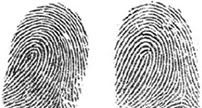It always starts with the joggers.

Read the a PDF of the full University of Washington paper here.
total control


"He also forced everyone, small and great, rich and poor, free and slave, to receive a mark on his right hand or on his forehead, so that no one could buy or sell unless he had the mark, which is the name of the beast or the number of his name. This calls for wisdom. If anyone has insight, let him calculate the number of the beast, for it is man's number. His number is 666."
Someone might think: "I am worried about car theft, so I will buy an expensive security device that makes ignitions impossible to hot-wire." That seems like a reasonable thought, but countries such as Russia, where these security devices are commonplace, have seen an increase in carjackings. A carjacking puts the driver at a much greater risk; here the security countermeasure has caused the weakest link to move from the ignition switch to the driver. Total car thefts may have declined, but drivers' safety did, too.

